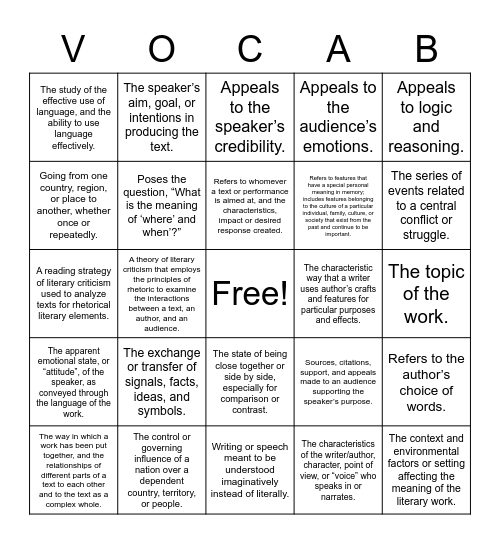

This bingo card has a free space and 24 words: Orientation in Space and Time, The Communication Model, Memoir, Ethos, Purpose, Migration, Rhetoric, Personal Narrative Essay, Pathos, Audience, Heritage, Rhetorical Analysis, Logos, Context, Communication, Nonfiction Prose, Anecdote, SpaceCat Document Analysis, Exigence, Tone, Creative Nonfiction, Rhetorical Appeals, Strategies, or Proofs, Speaker and Choices.
Qualitative Research Bingo | Review for test | Unit 2 Academic and Literary terms | Rhetorical Data Studies Bingo | BANKER
Share this URL with your players:
For more control of your online game, create a clone of this card first.
Learn how to conduct a bingo game.
With players vying for a you'll have to call about __ items before someone wins. There's a __% chance that a lucky player would win after calling __ items.
Tip: If you want your game to last longer (on average), add more unique words/images to it.